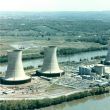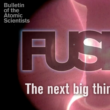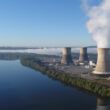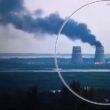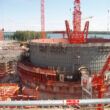NRC has failed in the past, but there’s still hope for its future
By David Lochbaum, July 11, 2008
As I’ve mentioned earlier in this discussion, good referees in sports go unnoticed. They consistently and clearly enforce the rules, seldom drawing complaints from either side. Poor referees hear complaints from both sides, albeit not often in response to the same call.
Unlike a competent referee, the Nuclear Regulatory Commission (NRC) gets noticed quite often. The NRC’s inspector general and the Government Accountability Office noticed that the commission allowed its fire-protection regulations to be violated for many years at many plants. The U.S. Court of Appeals for the Ninth Circuit noticed that the NRC failed to satisfy federal law when it deemed terrorist attacks against spent fuel storage “remote and speculative” and failed to consider such possibilities in environmental assessments.
Victor Gilinsky noticed that interveners in NRC proceedings usually don’t get a fair hearing.
The states of Vermont, New York, New Jersey, and Massachusetts noticed that the NRC’s license renewal process left much to be desired and contested the agency’s decisions. Many people noticed that after the NRC approved the power up rate at the Vermont Yankee Nuclear Power Plant, a cooling tower there collapsed due to increased vibrations from the heavier fan motors spinning at faster speeds.
NRC Atomic Safety and Licensing Board Judge Michael Farrar noticed that the NRC was “willing to take an obviously unauthorized shortcut” to “ignore the unmistakable meaning of the regulations” in order to approve a license.
Tony Pietrangelo and Andy Kadak noticed that the NRC has done a swell job ever since New Mexico Republican Sen. Pete Domenici threatened to slash the agency’s budget some 40 percent a decade ago. Prior to this heavy-handed threat, industry representatives noticed the NRC was being overly zealous and ratcheting up safety requirements. They noticed in a 1994 report by consultant Towers Perrin that nuclear plant managers were reluctant to question the NRC out of fear of regulatory retaliation. I’ve noticed that the NRC hasn’t scared any nuclear plant managers in about a decade.
But that’s all water under the bridge at this point. The key question now is what should a Bulletin roundtable on the NRC look like in 2018? Would it resemble this one, with participants citing updated examples of the NRC’s failures–even if they are semantically couched as areas where it needs the most improvement? It might, but that would be bad even if industry representatives complain about the NRC’s overzealous regulatory antics and public-safety-minded folks point out that the commission hasn’t ratcheted up regulations fast enough. Offsetting inequities to one party with inequities to the other is an unacceptable surrogate for being equitable to all parties. Success in 2018 would be regulatory performance so consistently fair and impartial that neither the industry nor its critics find any reason to complain. In such a future, the Bulletin would find other topics more suitable for roundtable examination than the commission’s faults.
It’s probably naïve to expect the NRC to become such a regulator. But it’s even more naïve to not actively strive toward that goal. The U.S. public and the nuclear industry deserve a commission that establishes requirements at the proper level and consistently enforces those requirements, not above and not below them.
Topics: Nuclear Energy
Share: [addthis tool="addthis_inline_share_toolbox"]

